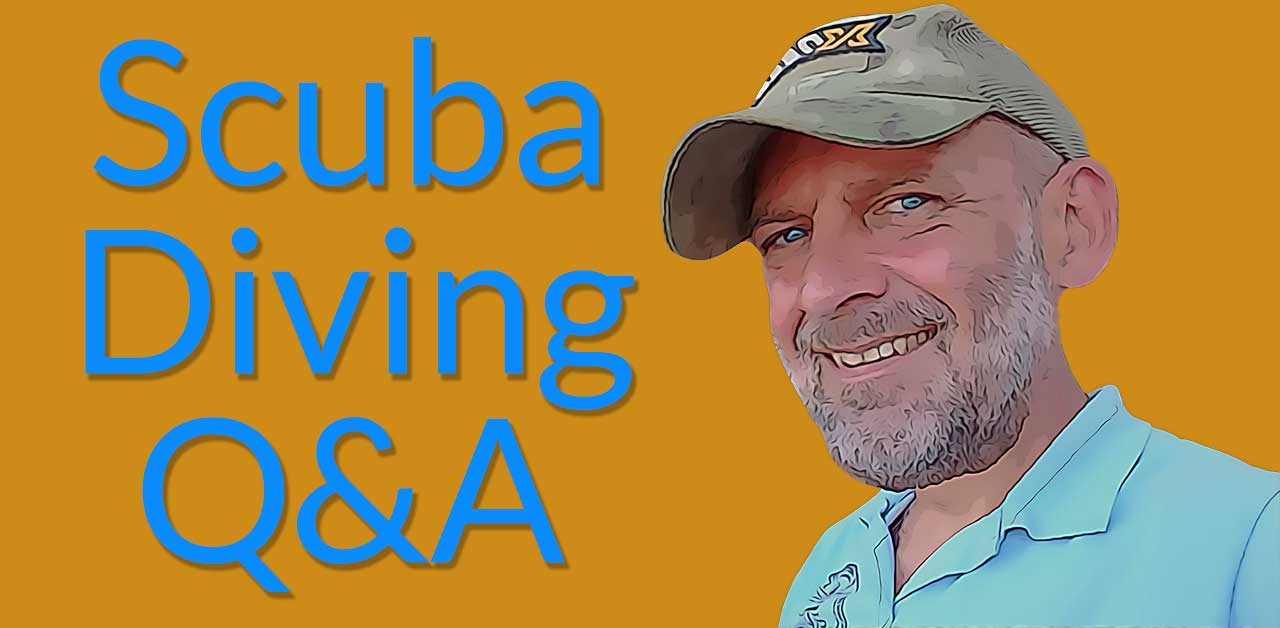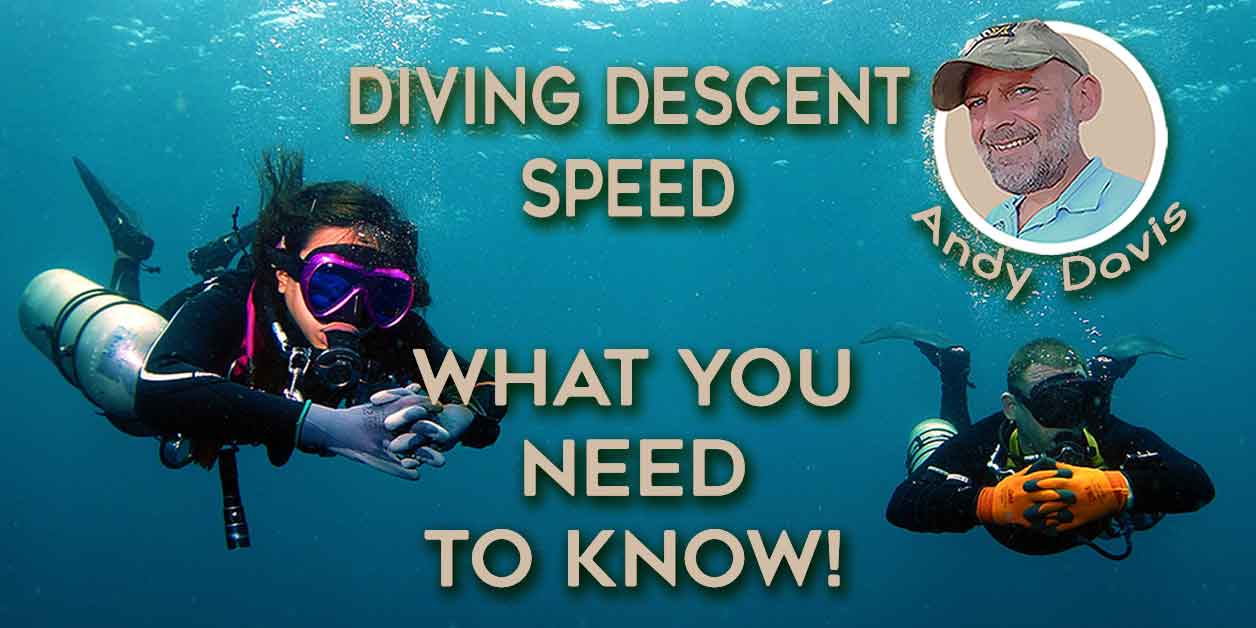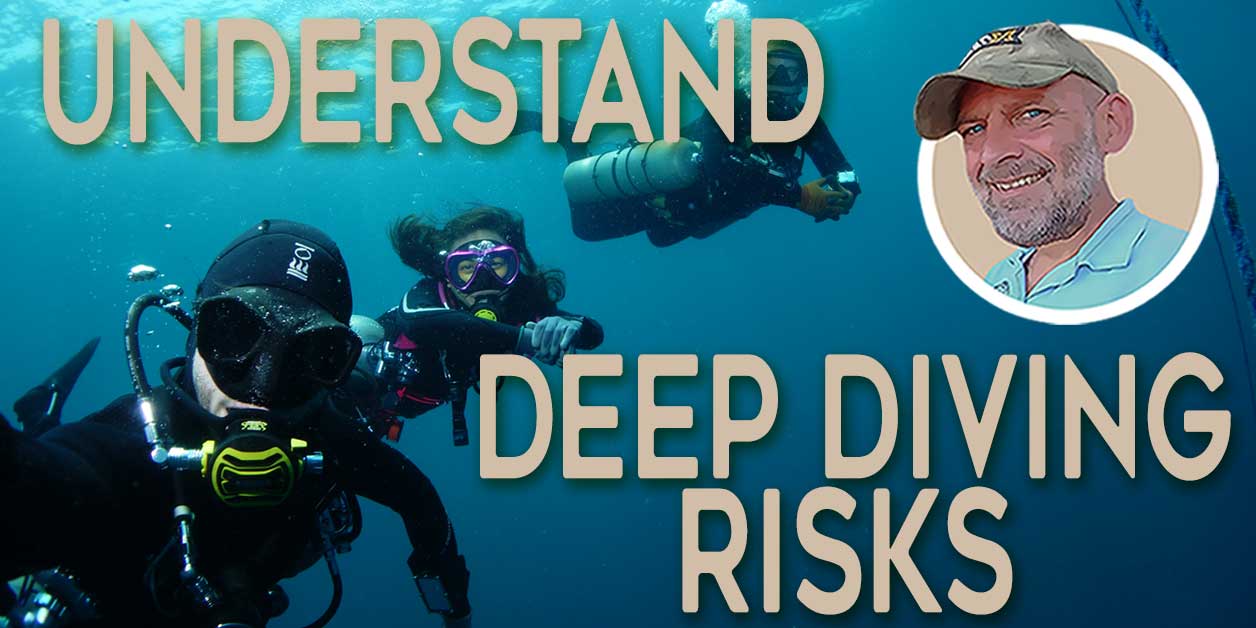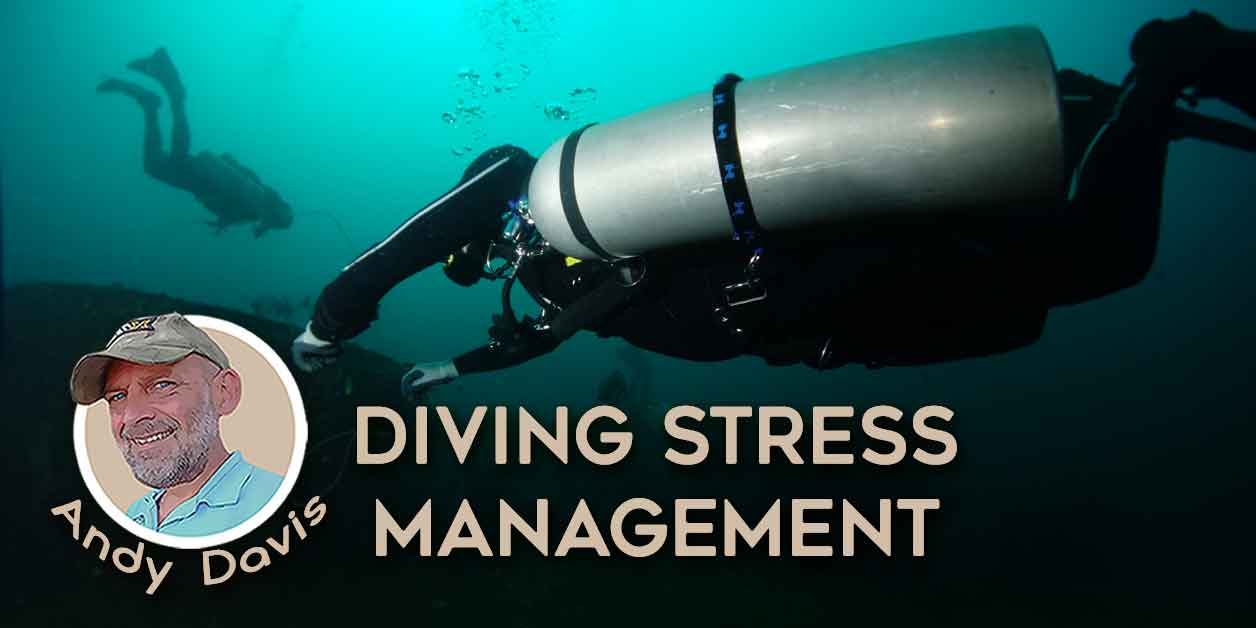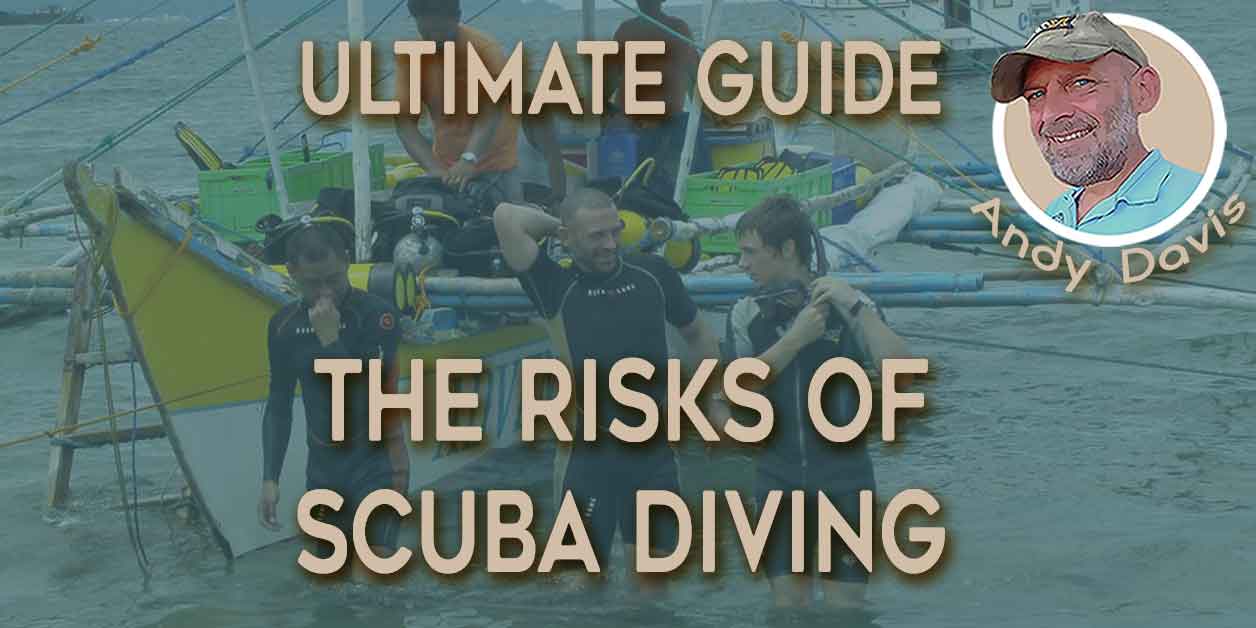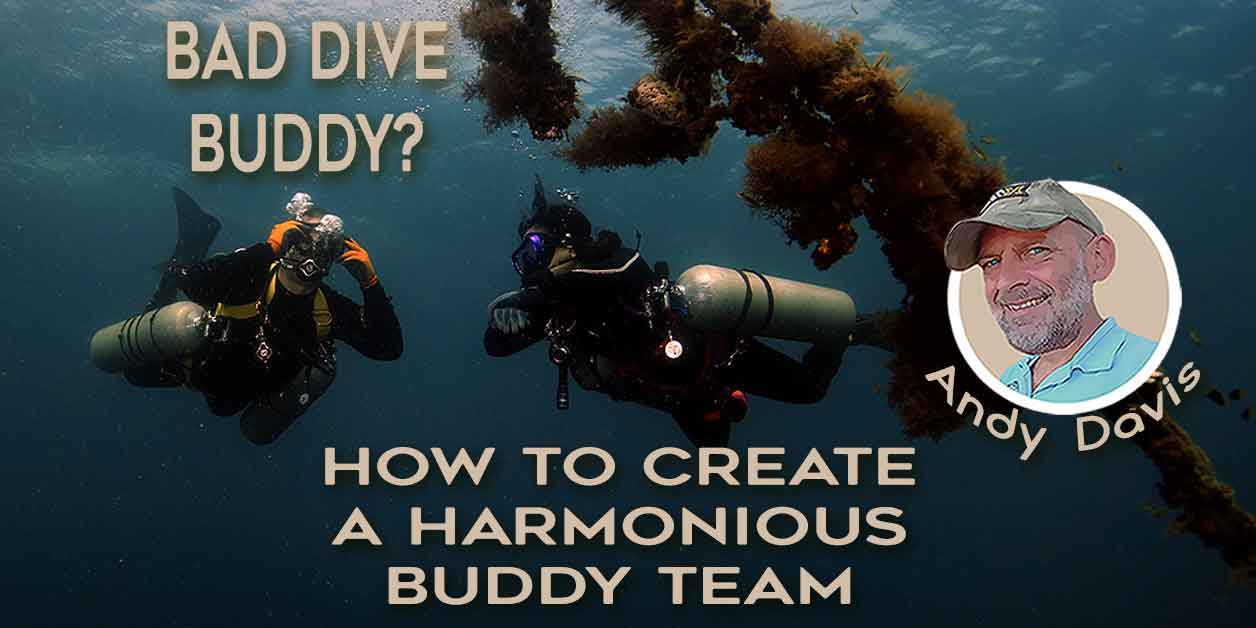Originally posted 2023-03-24 20:47:33.
Scuba Diving Anxiety & CO2 Narcosis
Do you feel anxious when scuba diving? You’re not alone. Anxiety can happen unexpectedly to both beginners and experienced divers, especially on deeper dives. But what’s causing it? Many concerned scuba divers ask for tips and tricks to manage anxiety while descending. The answer? It is often a result of CO2 retention and CO2 narcosis. Pay heed to those factors and your scuba diving anxiety may vanish.
Novice divers are more prone to producing extra CO2 due to their less efficient diving skills. This excess CO2 can lead to hypercapnia, a common cause of scuba diving anxiety. In this article, I will delve into how CO2 narcosis induces anxiety, ways to prevent it, and what to do if it occurs.
Scuba diving anxiety is commonly a product of hypercapnia
Scuba diving anxiety is often a product of hypercapnia. This is likely to be the case if you feel unexpectedly anxious when diving and cannot determine a cause for it. It is relatively common for scuba divers to feel excited and positive on the surface, only to feel anxious and scared when they reach the bottom.
The good news is that this is probably a physiological event, not some deep-rooted phobia of deep water.
The retention of CO2, known as hypercapnia, is exaggerated if your breathing becomes shallow and rapid. Scuba diving equipment further exaggerates CO2 retention because it adds additional dead air space to the respiratory tract.
As you descend, the increasing ambient pressure has a direct effect; elevating CO2 partial pressure inside the body (Dalton’s Law).
What are the symptoms of mild hypercapnia?
The symptoms of hypercapnia are dependent on severity, which is determined by the pressure of CO2 in your body. It is not uncommon for divers to experience mild hypercapnia on their dives. The symptoms of mild hypercapnia are:
- Confusion
- Anxiety
- Dizziness
- Headache
- Shallow breathing
- Flushed skin
Take note of the first three symptoms. These may be what you are experiencing on your dives.
Be aware of gas density recommendations
If your dive is moderately deep (30m/100ft+), then increasing gas density in your lungs further contributes to CO2 retention by changing respiratory gas dynamics that reduce your lung ability to expel CO2.
See: How deep can you dive using air?
Divers Alert Network (DAN) has issued recommendations on maximum gas density when scuba diving. The scientifically proven maximum gas density of 5.2g/l actually sets a max recommended depth for diving air (21%) at 30m/100ft.
Recommended maximum gas density depth for common scuba diving gasses
Gas | Surface density | Recommended Max Depth | Absolute Max | O2 MOD |
Air | 1.29g/L | 30.4m | 38.1m | 56m |
Nitrox 28% | 1.3g/L | 30m | 37.7m | 40m |
Nitrox 32% | 1.31g/L | 29.8m | 37.4m | 34m |
Nitrox 40% | 1.32g/L | 29.3m | 30.9m | 25m |
CO2 is a very narcotic gas
CO2 is a highly narcotic gas; 25x more narcosis effect than nitrogen. So any CO2 retention has an immediate cognitive impact.
The cognitive impact of CO2 narcosis initially presents as a strong sensation of unease and develops into acute panic as the severity rises. Your capacity for deliberate, rational judgment diminishes rapidly – although you won’t perceive that degradation in thinking ability. There is also a sensation that you “can’t get enough breath”, no matter how deeply you breathe.
CO2 narcosis presents as scuba diving anxiety
CO2 narcosis is nicknamed “dark narc” for that reason. With experience, CO2 narcosis is very discernable from nitrogen narcosis. This is very common in novice divers and, contrary to many assumptions, it is entirely a physiological, NOT psychological event. As such, it does not represent underlying anxiety and cannot be resolved through stress management techniques. It is the physiological factors that have to be dealt with.
The best response to scuba diving anxiety
If you experience anxiety when scuba diving and cannot determine a cause, it is best to suspect that CO2 narcosis is present. The correct response is:
1. Stop all exertion and focus on deep, slow breathing. You have to flush CO2 out of your system.
2. Mentally resist the rising stimulation to panic. The panic response will decrease respiratory efficiency and raise exertion. It will also lead to flawed judgments and dangerous instinctive responses.
3. Ascend to a shallower depth. This will directly lower venous ppCO2 and reduce breathing gas density to allow more efficient removal of CO2.
3. CO2 narcosis dissipates quite rapidly. It will go within minutes if you take appropriate actions. The respiratory system is excellent in removing CO2 when not impeded by gas density and pressure.
Does CO2 narcosis cause your diving anxiety?
In conclusion, scuba diving anxiety is a common experience for divers of all levels, particularly during deeper dives. CO2 retention and CO2 narcosis are often the culprits, with novice divers producing extra CO2 due to less efficient diving skills. This excess CO2 can cause hypercapnia, leading to anxiety.
In this article, we explored the ways in which CO2 narcosis induces anxiety, as well as tips to prevent it. To reduce the risk of hypercapnia, it’s recommended to descend slowly, avoid over-exertion on the surface, and limit gas density. With these precautions in mind, divers can enjoy a safe and anxiety-free diving experience.
About The Author

Andy Davis is a RAID, PADI TecRec, ANDI, BSAC, and SSI-qualified independent technical diving instructor who specializes in teaching sidemount, trimix, and advanced wreck diving courses.
Currently residing in Subic Bay, Philippines; he has amassed more than 10,000 open-circuit and CCR dives over three decades of challenging diving across the globe.
Andy has published numerous diving magazine articles and designed advanced certification courses for several dive training agencies, He regularly tests and reviews new dive gear for scuba equipment manufacturers. Andy is currently writing a series of advanced diving books and creating a range of tech diving clothing and accessories.
Prior to becoming a professional technical diving educator in 2006, Andy was a commissioned officer in the Royal Air Force and has served in Iraq, Afghanistan, Belize, and Cyprus.
In 2023, Andy was named in the “Who’s Who of Sidemount” list by GUE InDepth Magazine.

